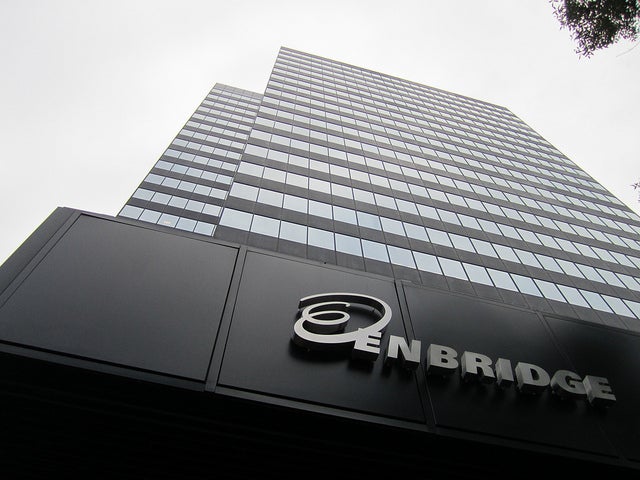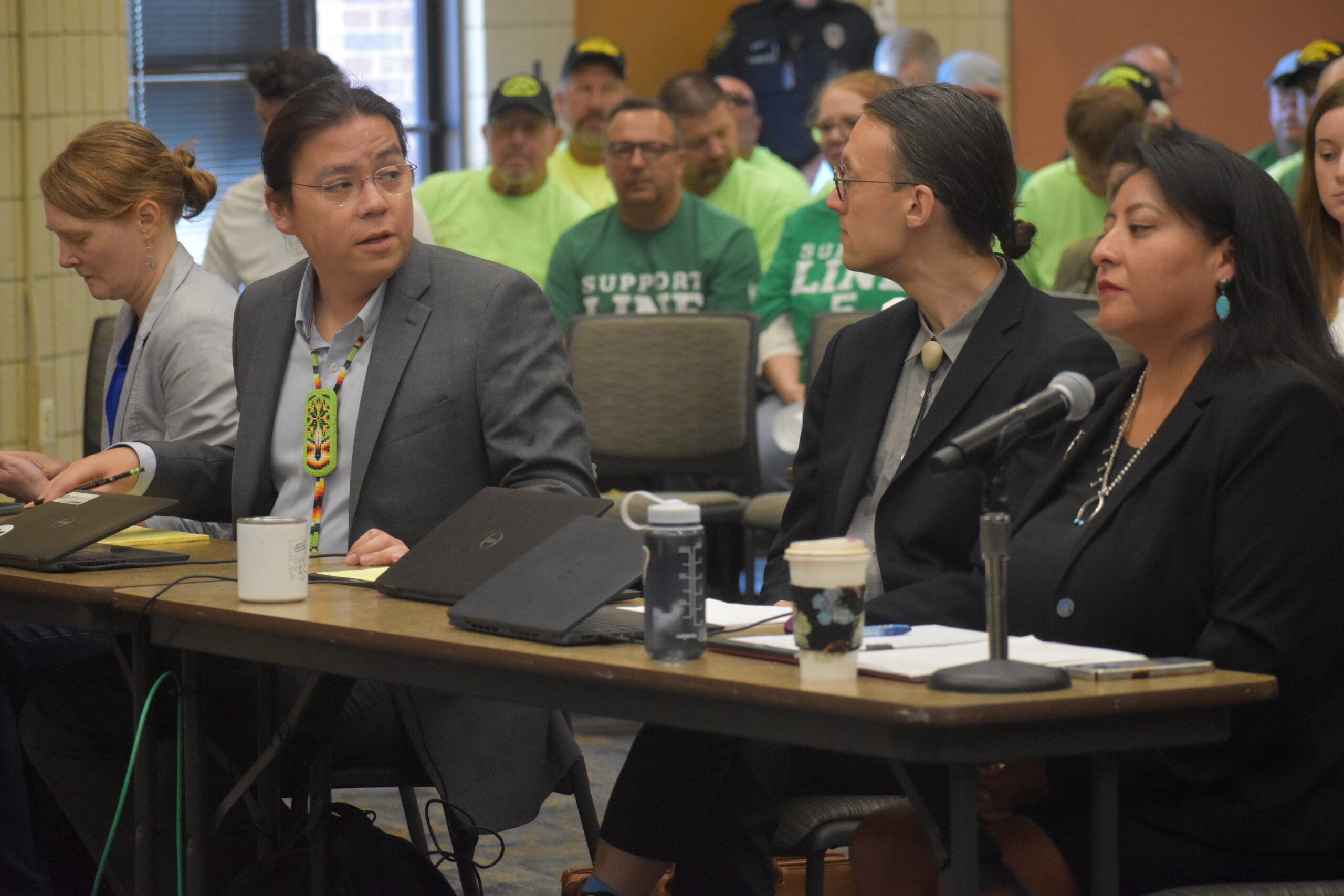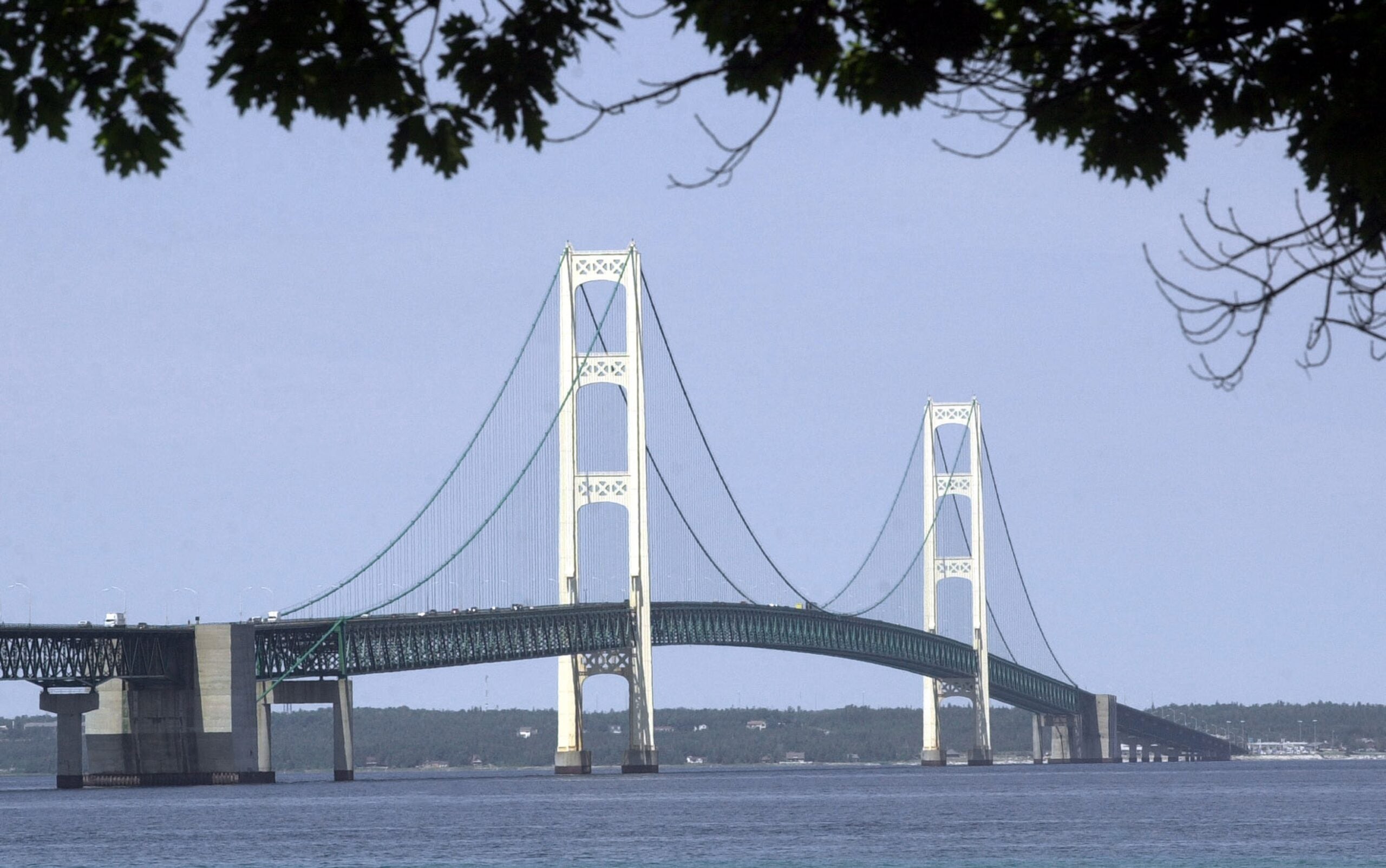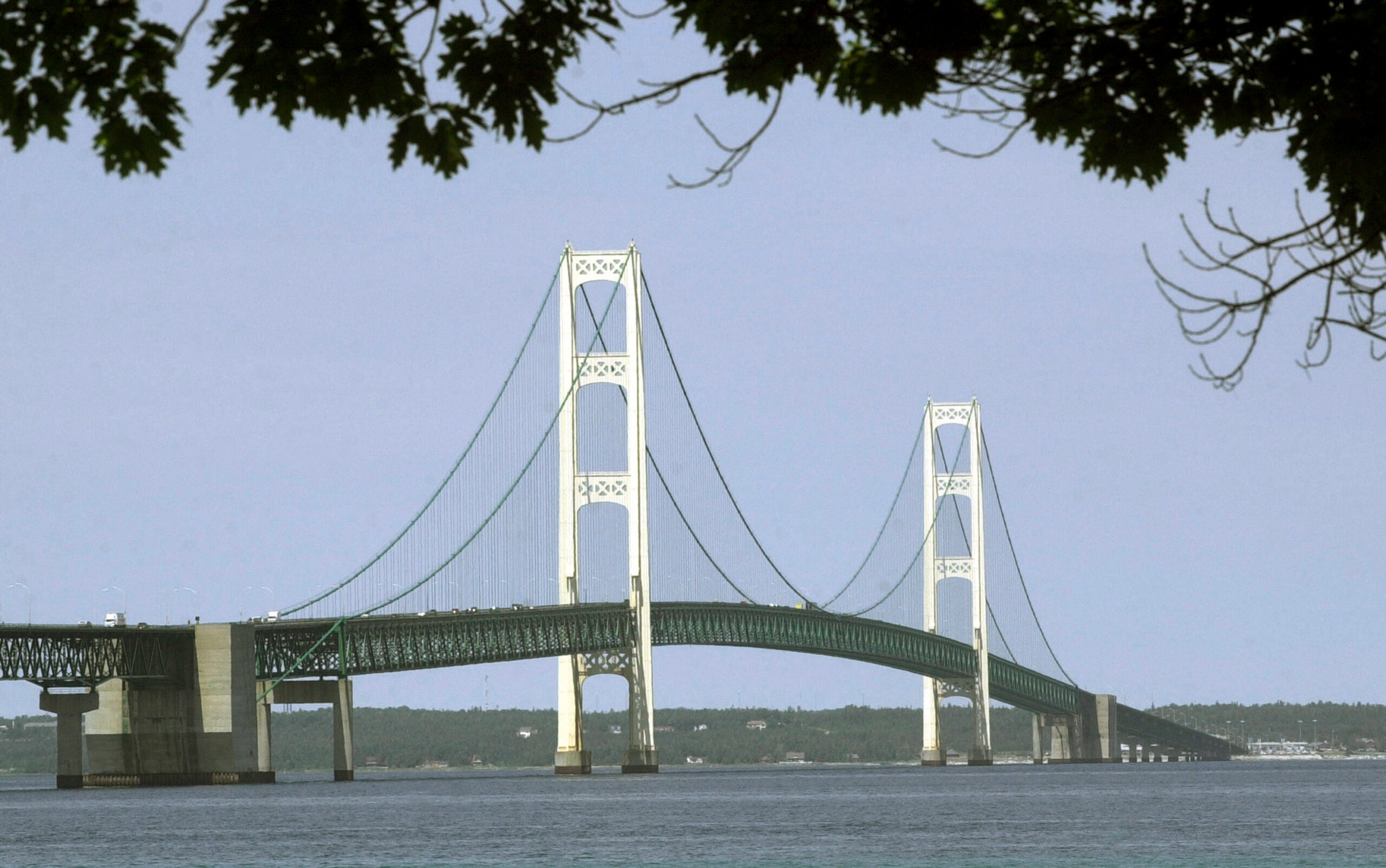Enbridge has confirmed it discovered dents on the company’s twin pipelines running under the Straits of Mackinac after Wisconsin-based American Transmission Company reported electric cables were leaking mineral oil on the lake bed last week.
The revelation has prompted calls from Michigan Gov. Rick Snyder that Enbridge speed up studies on ways to reduce the risk of anchor strikes and alternatives for replacing Line 5. The dual pipelines transport up to 540,000 barrels of oil and natural gas per day from Superior to Sarnia, Ontario.
In a news release Wednesday, Snyder said Enbridge reported the findings to the state, and that the dents were likely caused by vessel activity currently being investigated in the release of 600 gallons of mineral oil from ATC’s lines.
News with a little more humanity
WPR’s “Wisconsin Today” newsletter keeps you connected to the state you love without feeling overwhelmed. No paywall. No agenda. No corporate filter.
“An anchor strike was the largest risk identified in a previous independent analysis of the Enbridge pipeline, which is apparently what happened in the Straits last week. We need to accelerate these studies so they are completed as soon as feasibly and responsibly possible,” Snyder said in the release. “We need the right answers, but we need them as soon as we can get them so that we can take action faster to protect the Great Lakes.”
Enbridge spokesman Ryan Duffy said in an email, the company is compiling reports on alternatives for replacing Line 5 in the Straits and reducing the risk of anchor strikes that Enbridge will complete by Michigan’s June deadline. In a statement, Enbridge said the integrity of the pipelines has not been compromised.
“We are working closely with the state, the Coast Guard and PHMSA (Pipeline and Hazardous Materials Safety Administration) to provide updates on our inspections and our plans moving forward. We are taking immediate action to assess appropriate, reinforcing repairs,” the statement reads. “Going forward, as part of our agreement with the state of Michigan we are exploring new technologies that will help ensure the safety of Line 5.”
In the meantime, the U.S. Coast Guard continues to oversee response to the spill from ATC’s transmission lines. The agency is developing a plan to deploy remotely operated underwater vehicles (ROVs) in the Straits by this weekend, if the weather permits, to assess damage to the electric cables, said Sean Murphy, public information officer for the Coast Guard’s Unified Command. However, he said the agency would not be inspecting Enbridge’s Line 5.
“These ROVs will be used for American Transmission cables, and Enbridge is planning further ways to assess their damage,” he said. “They’re telling the Unified Command that there are no negative effects to their overall structural integrity.”
Snyder and environmental groups called on independent inspection of Enbridge’s Line 5, including Beth Wallace, conservation partnership manager with the National Wildlife Federation.
“I’m assuming Enbridge has gained visual of their pipelines and those images should be released,” said Wallace. “At this point, I think it’s safe to assume that we cannot take their word on the integrity of the pipeline and that information needs to be released to the state and to the public. Not only on the Enbridge pipelines, but all infrastructure in that area should have inspections done.”

ATC reported to the U.S. Coast Guard on Monday, April 2, 2018 that two cables underneath the Straits of Mackinac were leaking mineral oil. Photo courtesy of the U.S. Coast Guard
The U.S. Coast Guard is reporting ATC’s spill poses little risk to waterfowl, wildlife and humans in the area because of dilution in the water. However, an observer with the nonprofit Mackinac Straits Raptor Watch detailed his account of about 50 ducks excessively preening Thursday.
“The preening seemed to last over an hour and I have yet to observe this behavior by any waterbird during the count. Preening is something I have seen waterbirds do, but not an entire raft of birds and not for that long,” wrote Adam Bradley on the group’s website.
ATC has contracted with a company that has vacuumed about 250 gallons of oil from the damaged cables, which contain around 400 gallons each of the dielectric fluid. The fluid flows through a roughly 1 inch-core within the cables. The size of the cables has slowed the removal of oil, said Anne Spaltholz, director of corporate communications for ATC.
“It’s somewhat of a slow process, but it’s a careful process as well,” she said. “Secondly, we’re mobilizing the special resources that are needed to perform the underwater inspection so we can assess the condition of all of our six submarine cables.”
The Coast Guard said weather may hamper efforts to inspect the cables this weekend. NWF’s Wallace said that points to a vulnerability in the ability of agencies to immediately respond to any spills that may occur.
“This incident that occurred shows that a spill in the Straits, in particular in the winter months, would be next to impossible to address,” she said.
Snyder plans to reach out to Michigan’s congressional delegation to push for swift action on protection measures for the Straits.
Editor’s Note: American Transmission Company is an underwriter of Wisconsin Public Radio.
Wisconsin Public Radio, © Copyright 2026, Board of Regents of the University of Wisconsin System and Wisconsin Educational Communications Board.






